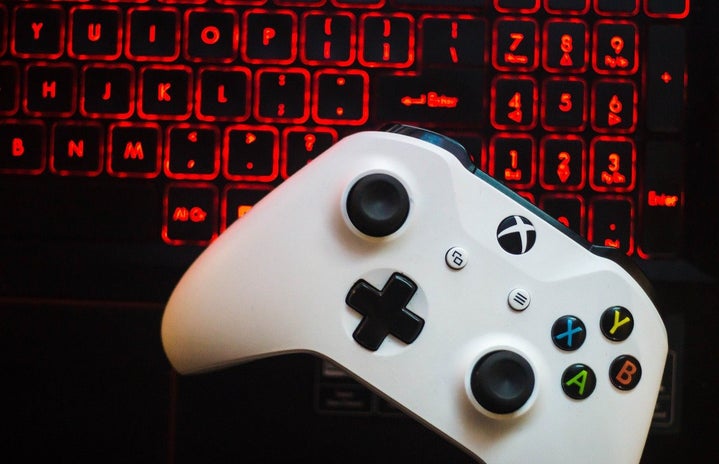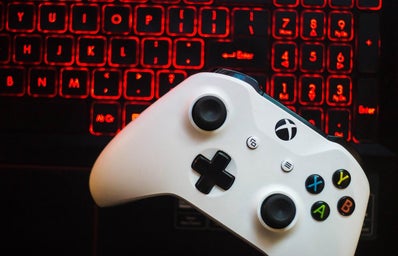In a nutshell, eSports are organized electronic gaming competitions, involving teams or individual players. This community, as many other sports’ ones, is pretty much male dominated. Being a woman in our society is already hard but, unfortunately, in these places, it becomes even harder.
To know more about how it is to be a female eSports player on the daily, I interviewed three Cásper Líbero’s eSports team members. Come with us to see what Sofia Faltz, Marina Cruz and Joyce Yuki told us about how it is to be a woman in this field.
First, How did their interest in eSports start?
S: I started playing just casually with some of my friends that already watched professional championships and made comments about it with me. I got more interested in it and started watching a championship called CBLOL, the main Brazilian LoL [League Of Legends] championship, but I had never thought about competing professionally until I got into my university.
M: I started getting interested in eSports just recently. I’ve always been a casual player, watching some championships from time to time. Although, I started to delve deeper when I got into my university’s team and also because of the Ignis Cup, an inclusive championship from Riot [Games, an American video game developer].
J: I have watched my brother play since I was a little girl. He was always sort of a gamer and, consequently, I started getting interested in the subject. Although, I actually got in this world by watching League of Legends’ competitions, in 2015, paiN’s [a Brazilian eSports organization] golden era. Even though I didn’t play LoL for a long time, that was what inspired me to get better at the game and to play with those people I watched in the championships.
Did they have a female role model when they first started?
S: The eSports scenario is still very masculine. For example, the championship CBLOL doesn’t have any female player in 10 teams. At the time, I got inspired by Julia Mayumi, who was the first female player to be a part of a team in the competition. However, she was only registered, never even having the chance to play. I think she was the first female name that I saw in this scenario.
M: When I first started, I was most inspired by content creators such as Nerissa, Sabrinoca and Riyuuka. This inspiration lasts to this day.
J: At CBLOL, I don’t recall seeing any women (unfortunately). Although, in some minor official championships, it was possible to see some women, such as Julia Mayumi and Cute, two female players that I saw and liked a lot. As I prefer watching bigger competitions over streams, I end up not seeing many women.
What was the most difficult situation they have been through since THEY started playing?
S: The hardest moment that I’ve been through since I started playing competitively was when a teammate was sexist with me in front of eight other friends that were playing together. I felt completely embarrassed and didn’t know what to answer because I didn’t know the team that well. Although that situation was terrible, I had all the support from my other teammates, who quickly confronted him so that wouldn’t happen again. Going through that left me completely insecure, since it was my first month in the team.
M: I believe that the most difficult situations that I had to go through was to always read sexist and transphobic comments in games’ chats.
J: Despite all stereotypes that people put on us women, for example, that we only play as a support, that we’re carried by men and don’t have the capacity to get to a higher elo by ourselves, in addition to misogynistic comments when they discover that we’re women, and much more… There was a time that Russia made an entirely female team with no prior preparation. They became a target to misogyny, where the other team banned just supporters and chose any champion as a way to mock them. At the time, that became a joke, but it is an offense to all of us.
How do they deal with the criticism towards women in this field?
S: Being a woman in this scenario is knowing how to impose yourself, otherwise people just walk over you. It’s very sad having to fight for that gender matter still in 2024, but there’s no other way, it’s necessary to confront it so that we can conquer our space. The eSports community can have a really toxic side, but I believe that a consciousness about this matter is growing, especially with the Ignis Cup.
M: If the criticism is constructive, I always listen to them and try to improve as a player or a person. The problem is that, most of the time, the criticism comes loaded with mean comments that are intended to offend.
J: After some time, you learn to ignore these comments. I would say that it is mandatory to have a good mentality and don’t let yourself be taken by emotion and by people that are not important to you, especially strangers.
and How does it feel to be a woman in this environment?
S: Nowadays, I feel good because I have a team that supports my growth and development as a player. Although in the beginning it was a bit complicated. I felt a lot of pressure to play well and a constant feeling that I had to prove myself all the time. Now, I can take it in a lighter way.
M: I feel divided. On one hand, I’m proud to be a woman in this scenario and to see the growing female representativity, cis and trans. But, I still feel a bit apprehensive to talk in teams’ chats or showing up in championships, not because of my team, but because of the fact that being a woman, specially transgender, in this scene is still a huge challenge. We have to prove ourselves ten times more than male players and, when we report unacceptable situations, we are called hysterical and over the top. As a trans woman, this becomes even more difficult. In addition to having your skills doubted, you also have your gender questioned.
J: Nowadays, I think that the community is way more open and a comfortable space for women to be in. In 2015, it was really painful to be a woman in eSports to the point that many of them (me included) used male nicknames.
“the most important thing to do is to not give up doing what you enjoy”
All that being said, it’s possible to notice some similarities between the players’ statements – such as how sexism is still so present in this scenario, even though it’s slowly fading more and more each day.
The championships CBLOL and Ignis Cup are also mentioned a couple of times. The latter is an improvement for the eSports community, considering that it’s inclusive and gives space for minorities to grow in this field.
The girls also told us that they started playing professionally when they got into college. In their case, the Cásper Líbero University in São Paulo, Brazil. Thus, Joyce Yuki wanted to give women players out there some advice.
“I would like to say that if you are a woman and are interested in eSports, the most important thing to do is to not give up doing what you enjoy because of other people’s opinions. The best thing to do is to find a support network such as friends who can help you in awkward situations”, advises the team member.
So, if you are from Cásper Líbero, there is an eSports team called HPE that plays LoL, Valorant, CS, and some other games. It is a great support network for you to get into and everyone is invited to participate!
__________
The article above was edited by Clara Rocha.
Liked this type of content? Check Her Campus at Casper Libero‘s home page for more!


